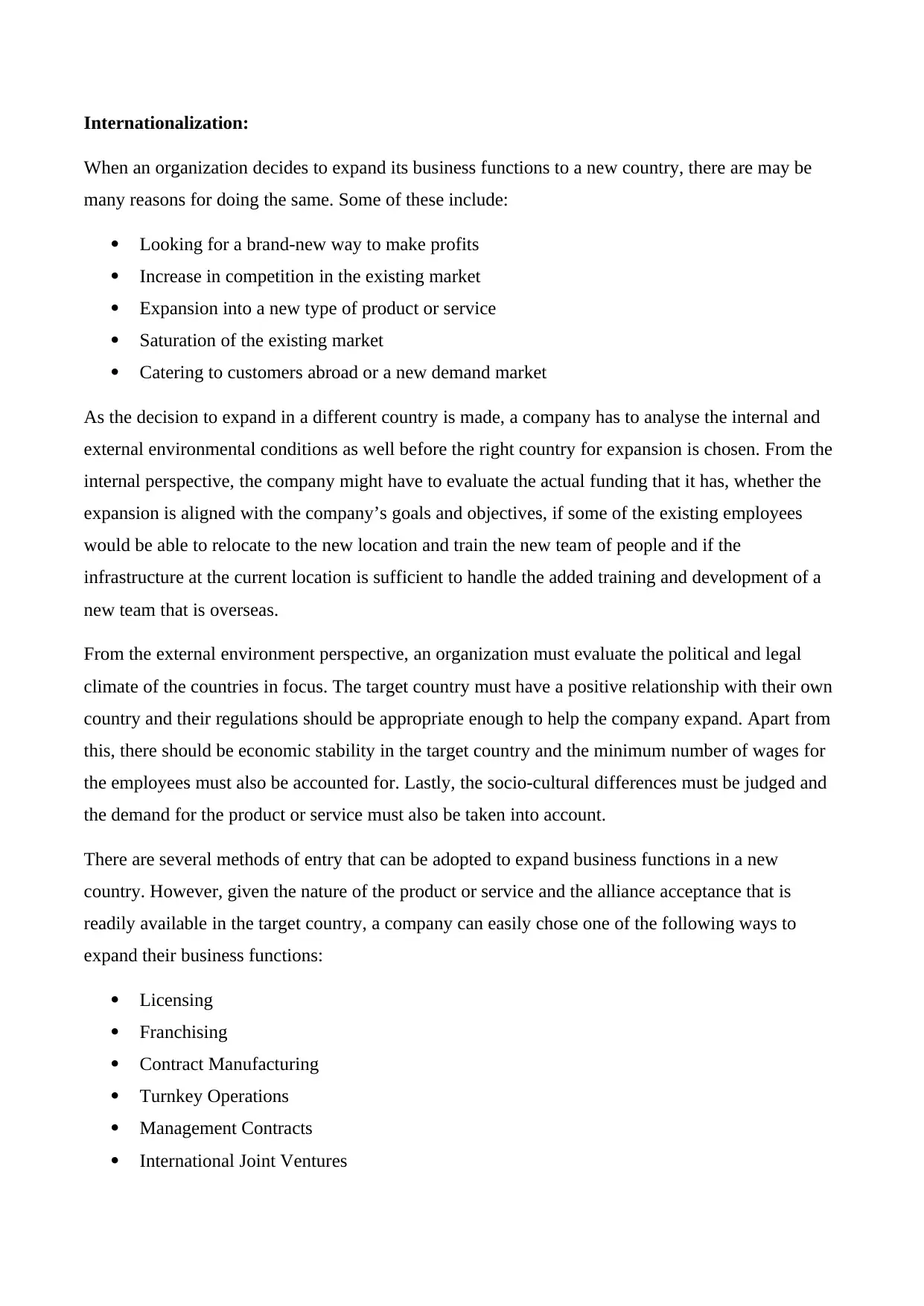Exploring International Business Expansion and Entry Strategies
VerifiedAdded on 2022/09/13
|2
|409
|16
Report
AI Summary
The assignment discusses the reasons for international business expansion, including market saturation, profit seeking, competitive advantages, and market diversification. It outlines the decision-making process for entering international markets, considering factors like product marketability, data availability, and the firm's international capabilities. Internal factors such as company funding and existing infrastructure are assessed, alongside external factors like political and legal environments, economic stability, and socio-cultural differences. Different modes of entry, such as licensing, franchising, contract manufacturing, turnkey operations, management contracts, international joint ventures, and distributorship, are explored, with examples of their application in different industries.
1 out of 2








![[object Object]](/_next/static/media/star-bottom.7253800d.svg)